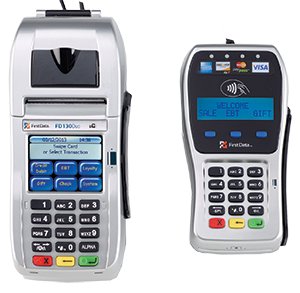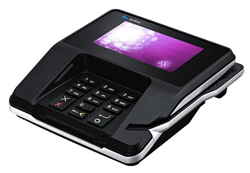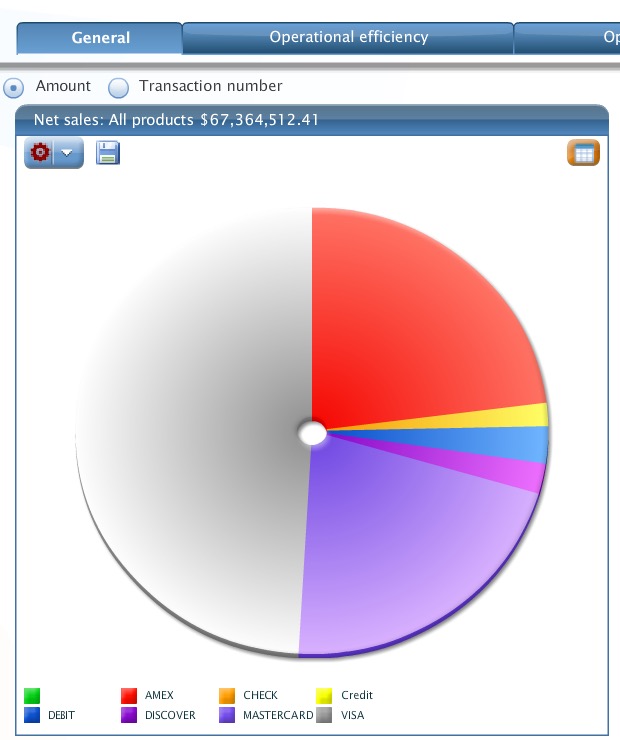Heavy equipment rental companies and dealers must make changes to comply with new Visa credit card acceptance rules. The sweeping changes to rental industry card acceptance rules were announced in October 2016, with April and October 2017 mandates for compliance. The changes are complex and require cloud technology to automate compliance. Countertop terminals are not capable of compliance, and must be replaced.

Countertop terminals such as the FD130 and the Verifone VX520 are not capable of compliance for heavy equipment rentals, and must be replaced.
Visa rules changes include:
- Defining who initiated the transaction (customer self-pay or merchant)
- Transaction data sent
- Authorization rules
- Stored card rules
- Customer communications.
Compliance will increase approvals and mitigate fraud risk; Failure to comply will increase risk of financial losses and issuer declines while reducing EBIDTA. These changes are significant, impacting chargeback risk and financial penalties to heavy duty equipment rental.
Visa compliant solutions:
The complexity of compliance with both card present and card not present rules requires a solution that can dynamically manage it, removing employees from making decisions that could impact profits. Everyone must change in the ecosystem- card issuer, acquirer (credit card processor), payment gateway and merchant. Whatever you had in 2016 was not compliant since all the other players were not ready yet.
Merchants should update to a payment gateway that supports at a minimum:
- Estimated, initial, incremental, and final authorization requests (traditional terminals cannot comply
- Authorization Reversals for unused authorization (amount changed)
- Authorization validity periods
- Stored credential rules
- Creation and retrieval of customer opt-in records
- Automated authorization and settlement amount matching (otherwise transaction downgrades to worst rate possible and other repercussions)
- Verified by Visa, which uses the 3-D Secure protocol to shift fraud liability to the issuer, much like EMV does for retail.
If you have a payment gateway, or need one, ask these questions:
- How will you help us comply with the new Disclosure to Cardholder and Cardholder Consent rules?
- What does the consent record look like?
- How will we retrieve records?
- How long are the records retained?
Contact Christine Speedy to get a compliant solution for your rental services needs. 954-942-0483. The ROI for most businesses is virtually overnight! Month to month risk free solutions.
Another change of note is revisions have been made to split the “Other Fraud” Dispute condition under Enhanced Dispute Resolution into separate conditions for Card-Present and Card-Absent Transactions, and to incorporate changes to the payment
flow related to Disputes. For merchants that comply, it’s all good. For merchants that do not comply, there will be more risk of financial penalties and risk of issuer initiated chargeback. A key component to mitigate chargeback risk is support for Verified by Visa.
There are many nuances to the rules and potential chargeback reason code 72 risk, which were non-existent in the past. Rather than consumer initiating a chargeback, the issuer will be within their rights to initiate a chargeback if the merchant fails to comply with the rules, for example, failing to submit the correct authorization flag for an estimate.
Reference: Visa Core Rules and Visa Product and Service Rules, 15 October 2016. See especially Table 5-14, 5-21, 5-22. https://3dmerchant.com/blog/merchant-bulletins-downloads
• https://usa.visa.com/support/
• Some acquirers put out statement alerts on their April, June and or July merchant statements.
See also, Visa Stored Credential Mandate.
Contact Christine Speedy to get a compliant solution for your rental services needs. 954-942-0483. You’ll be more profitable, efficient, and




